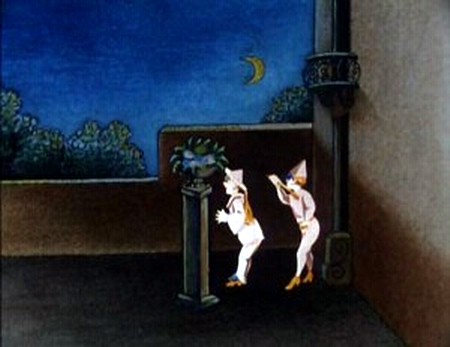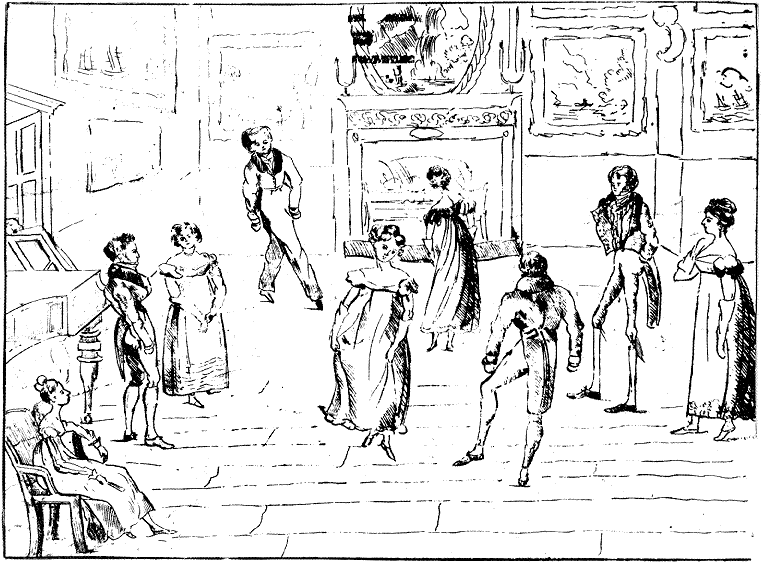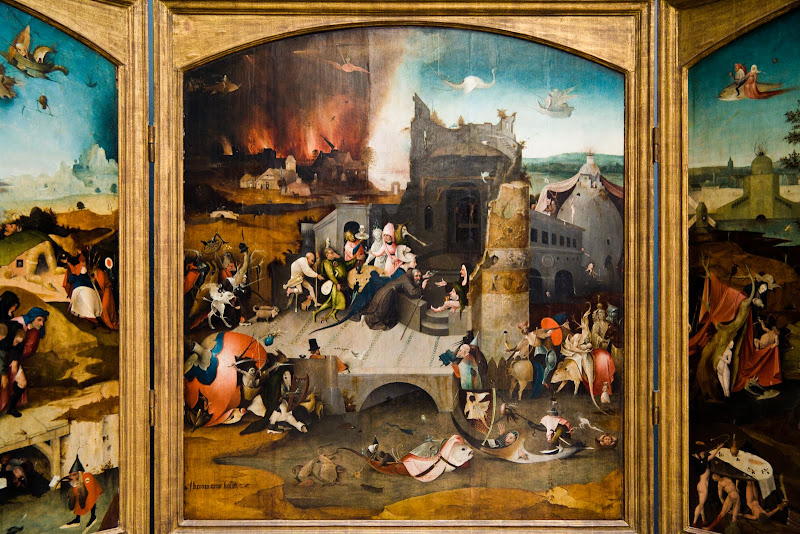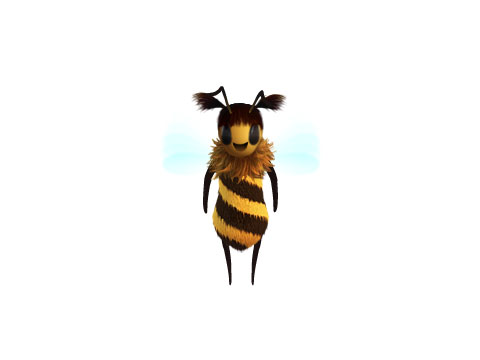
This second installment of my trip report is a bit longer than the first, and more detailed. Why? Because--admit it--you probably know nothing about Ghent, so a few extra details won't hurt.
On July 9th, Mark and I took a train from Gare du Nord to Brussels and from there a train to Ghent. For the past three years I've had a substantial number of French-speaking Belgian students, mostly from Brussels, in my EFL classes. But Ghent is in the Flemish part of Belgium, a place where most of my French-speaking students have never been, so I was glad to experience this other part of the country first hand.
Belgian politics is quite complicated--there are six separate governments (and parliaments), each with their own federal, regional and linguistic divisions. Some things, like education, are dealt with by the linguistic divisions. Roads and infrastructure are managed by the regional divisions and the federal divisions deal with things like finance and law. Even though there's currently no working national federal government, the country operates very smoothly.
Things did seem to be running very smoothly in Ghent. The city has a well-preserved medieval center but it also has a large university and much larger than Bruges, to which it's inevitably compared. Even in the summer with many of the students gone, Ghent felt like a thriving small city.
We were fortunate enough to say with Helen White during our visit. I initially "met" Helen virtually, through the work that she does with Krikri, a fabulous organization that highlights a range of contemporary poetic ativity through festivals, performances, projects and workshops. In 2008 they organized the
Zaoem festival, and Helen was kind enough to use some of
my pieces for the visual poetry exhibition. More recently, Helen organized
Infusoria: an Exhibition of Visual Poetry by Women from Three Continents, which brought together work some of the most compelling contemporary visual poets from Belgium, Canada, Germany, Britain, the Netherlands, Turkey and the United States. My special edition of
Foursquare snuck in there, too.
So, Helen is clearly a stellar organizer and curator. She's also a fabulous host, which I'll talk more about in a minute. However, I also want to mention her own work. Helen's visual poems manage to be complex and delicate at the same time. One of my favorite pieces by her is "A Planet Like Pluto":

You can learn more about Helen and her work through
her website.
Helen, as I said, was a fabulous host. During the three days we spent there, Helen took us all over the city, cooked tasty quiche, and maintained a refrigerator stocked full of cheese and beer. I won't tell you about every beer we drank or every cathedral that we went in, but here are some of the highlights of our time in Ghent.
1. Beer. Belgium's reputation for good beer is completely justified. While in Ghent, I drank numerous Trappist and abbey beers that I'd never had before, as well as a variety of lambics and gueuzes. My favorite was by far Rochefort 8. Rochefort 8 is perfectly malty and not at all boosey. We sat outside, even though it was really very cold, and drank beer at Het Waterhuis Ann de Bierkant:

We sat inside at Trollekelder and drank beer when it was raining. Helen very wisely chose to have a coffee:
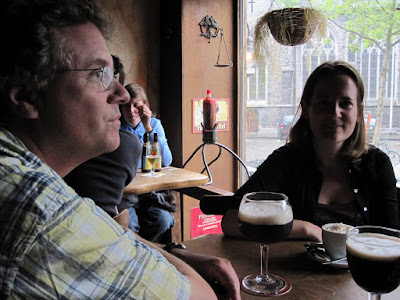
We had beer with lunch and dinner, beer with friends, beer after the reading. You get the idea.
2. The reading was incredibly fun. I'd never before read to an audience of predominately speakers of languages other than English, so it was a challenge to put together a performance that would work in that context. Mark performed some pieces from
Temporary Worker Rides a Subway as well as
The End of America. I performed some sections from Terminal Humming and also my 2006 Dusie Chapbook,
Diverse Speculations Descending Therefrom.
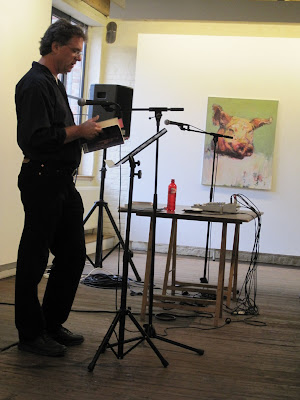
This photo is blurry, but it captures the mood of my performance quite well:
After Mark and I performed, other people in the audience also came up and gave short readings/performances. I was grateful to hear work from so many poets who were new to me. Here is Jelle Meander, a poet and musician--and one of the other Krikri organizers--performing a sound poem:

Xavier Roelens, Olaf Risee, Tine Moniek, also performed that evening, as well as (if I remember correctly), two other men who recited some more traditional Flemish poetry. The event ended with an improvisation around the pig we'd all been admiring. There's a lot to be said about the work people performed that evening, and especially about the context of sound poetry in Belgium (and, as we later learned, the Netherlands). In a country with three official languages (Flemish, French and German) and rather intensely local debates about what language is spoken where and by whom, sound poetry seems both daring and practical. Mark and I talked about this a lot on the trip, with each other and with the poets we met. You can read more of Mark's thoughts on the subject at his blog.
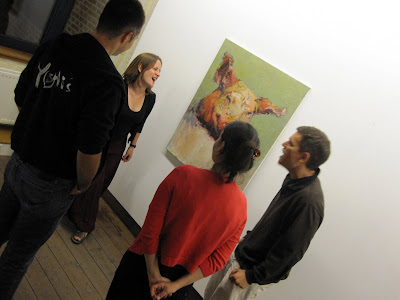
And then, we went to the bar, drank beer, and played with a mysterious blue balloon. It was a very late and lovely night. (Left to right: Lies Van Gasse, Tine Moniek, Xavier Roelens & Olaf Risee):

3. Medieval and Renaissance Architecture and Art. As I've already said, Ghent has a well-preserved medieval downtown. On just about every walk, we spent a lot of time admiring the buildings and the canals. The Sint Baafskathedraal (Saint Bravo Cathedrdal) was especially interesting. The cathedral was built, of course, in stages over hundreds of years. We went there to see "The Adoration of the Mystic Lamb," an early Flemish polyptch panel painting by Hubert and Jan Van Eyck. My favorite panel depicts the pagan writers and the prophets of the Torah rushing forward to worship and adore the mystic lamb of God. Virgil is in there somewhere. I love how calm and unexcited their faces are.
Sint Baafskathedraal is also lovely in its own right.

We also went up the tower of the Belfort in Ghent. I'm not especially afraid of heights, but even I was a bit daunted by the height and the very narrow walkways along the outer edge of the bell chamber. Here's the view overlooking the town hall, which is the large building on the left.

3.2 Helen, Mark, Xavier Roelens and I took a trip to the Museum voor Schone Kunsten in Ghent, which has a great collection of Medieval and Renaissance Flemish work, including several by Hieronymus Bosch (but not "The Temptation of Saint Anthony," which we saw in Brussels, and which I'll write about later). Bosch's work is beautifully detailed and grotesque--it did look proto-surrealist, although his depictions of heaven and hell are probably pretty consistent with the medieval literature of his contemporaries.
The museum also had an exhibition of works on paper by Raoul de Keyser, the artist in residence. In retrospect, I realize I was a bit familiar with de Keyser's work because of an exhibition of his paintings about two (or three?) years ago in New York. I didn't see the exhibition (because I live in
San Diego), but there's a brief
article about it in the Brooklyn Rail. Most of the pieces at the Museum voor Schone Kunsten were pencil or charcoal on paper, and I could see how he moved from doing work that was mostly figurative to work that is more abstract.
4. Mark and I had read about jenever, a kind of gin, before we'd left on our trip, and were eager to try some. With Helen, we went to a bar that specializes in jenevers, next door to
Het Waterhuis Ann de Bierkant (where we first drank beer). There are two types of jenever: "Oude" (Old) and "Jonge" (Young). Confusingly, though, this distinction has nothing to do with age, but with distilling techniques. Either way, I prefered aged versions of both types, and in general prefered the oude jenevers to the jounge ones. Some jenevers are flavored with fruit or chocolate, but those weren't my favorites. On a rainy afternoon or evening, of which there are many in Beligium, sipping a jenever in a warm, cozy bar feels perfect.

5. Helen took Mark and I to meet Godfried-Willem Raes and his robot orchestra at the Logos Foundation. The foundation specializes in collaborative music and dance concerts that involve interaction between people and the robots. Godfried and his team have developed not only the robots, but a variety of human interfaces, including microwave radar and wireless gesture control. Yes--wireless gesture control! Although he's still working on perfecting this technology we saw Godfried conduct the orchestra with very subtle movements of his hands. These are some of the instruments:
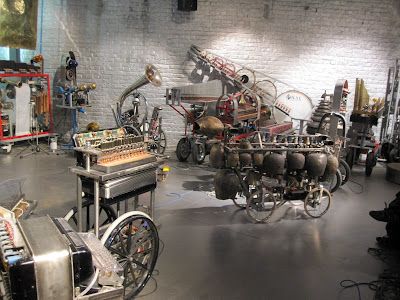
And here's Godfried in the back setting up the orchestra to perform. Note all of the wires coming out of the computer.

Several composers have written pieces specifically for the robot orchestra, which now has forty robots, including organs, bell-machines, a double string hurdy-gurdy, the player piano, a vibraphone, an accordeon and a sousaphone. You can read a more in-depth description of the robots here on the Logos Foundation website. Finally, Helen, who has performed with the orchestra, wrote a longer piece about it for the Infusoria blog that I urge you to read.
I'm grateful to the creative energy and generosity of Krikri, and especially Helen, for making our visit to Ghent possible. I think that I'll have to find a way to be back in Ghent sometime soon.
Look for the third installment of this trip report, on Amsterdam, in the next few days.
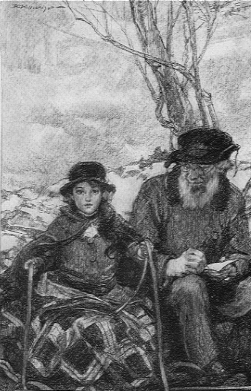 1. This is the first holiday season since we moved to California that Mark and I have spent together. It's been a nice combination of laying low (cooking, movies, walks) and socializing--we spent a nice Christmas Eve with the California branch of Mark's family, and this evening we're going over to the Rothenbergs'. In a few more days, we're headed to Ensenada. I've long fantasized about blowing off the entire winter holiday season and instead getting out of the country, so this is a step in the right direction.
1. This is the first holiday season since we moved to California that Mark and I have spent together. It's been a nice combination of laying low (cooking, movies, walks) and socializing--we spent a nice Christmas Eve with the California branch of Mark's family, and this evening we're going over to the Rothenbergs'. In a few more days, we're headed to Ensenada. I've long fantasized about blowing off the entire winter holiday season and instead getting out of the country, so this is a step in the right direction.


